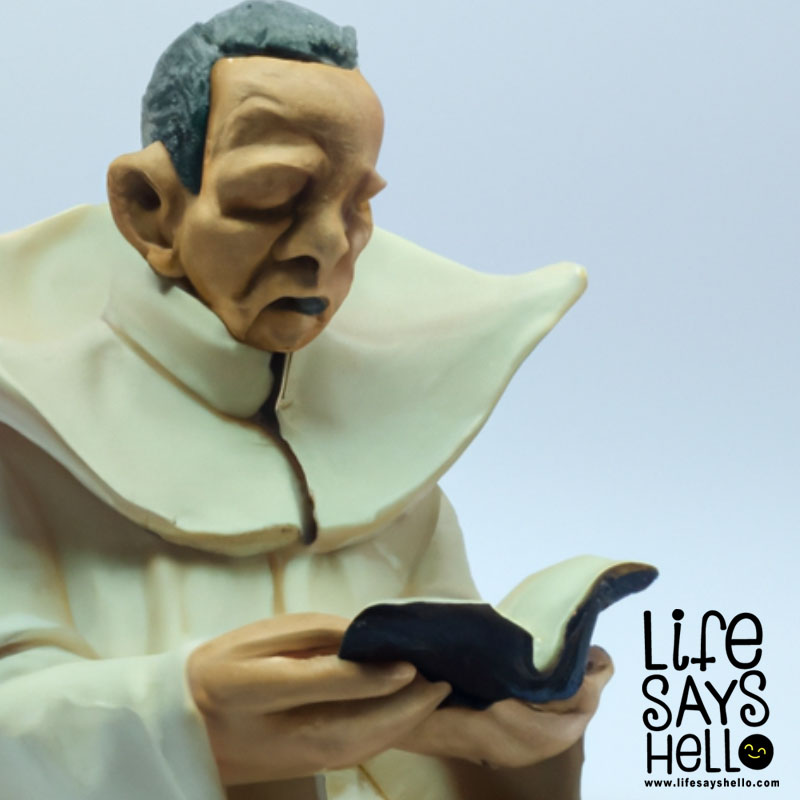Unraveling the Enigma: How Old Was Mary When She Gave Birth to Jesus?

Delving into the captivating story of Jesus' birth, one cannot help but wonder about the age of his mother, Mary, and the remarkable role she played in this miraculous event.
Introduction
The birth of Jesus Christ is an essential part of Christian history and theology, and understanding the details surrounding this miraculous event can lead to a deeper appreciation of its significance. One of the most intriguing aspects of the story is the age of Mary, Jesus' mother, when she gave birth. Although the Bible does not provide a specific age, we can explore various scholarly estimates and historical contexts to gain insight into this fascinating question. In this article, we will delve into the mystery of how old Mary was when she had Jesus, as well as her unique role in this extraordinary event.
Scholarly Estimates of Mary's Age
Although the Bible does not explicitly state Mary's age at the time of Jesus' birth, most scholars estimate that she was between 12 and 16 years old. This age range may seem surprisingly young by today's standards, but it is essential to consider the cultural context of the time. In ancient Jewish society, it was not uncommon for girls to be betrothed and married at a young age, often shortly after the onset of puberty. This practice was primarily due to the relatively short life expectancy and the need for families to ensure the continuation of their lineage.
Several factors contribute to the scholarly consensus on Mary's age. First, the Bible mentions that Mary was "a virgin espoused to a man whose name was Joseph" (Luke 1:27). The term "espoused" refers to the betrothal or engagement period, which typically took place when a girl was around 12 to 13 years old. Additionally, the ancient Jewish historian Josephus wrote that the legal age for marriage was 12 for girls and 13 for boys. These factors, combined with the cultural context mentioned earlier, provide a solid foundation for the estimation of Mary's age when she gave birth to Jesus.
Mary's Unique Conception and Role in Jesus' Birth
Mary's age is not the only intriguing aspect of her story; her unique conception and the role she played in Jesus' birth are equally fascinating. According to the Bible, Mary was a virgin who became pregnant by the Holy Spirit before her marriage to Joseph (Luke 1:26-35). This miraculous conception is a cornerstone of Christian belief, as it signifies Jesus' divine nature and the fulfillment of Old Testament prophecies.
When the angel Gabriel appeared to Mary to announce her pregnancy, she responded with faith and obedience, despite the potential stigma and challenges she would face. Mary's humble acceptance of God's plan for her life is a testament to her faith and devotion. Upon learning that her cousin Elizabeth was also miraculously pregnant, Mary visited her and praised God for His grace and mercy, as recorded in the beautiful Magnificat (Luke 1:46-55).
Throughout the biblical account of Jesus' birth, Mary's role is primarily that of a faithful servant and witness to God's miraculous work in history. She is not the focus of the story, but rather a humble participant in the unfolding of God's plan for the salvation of humanity.
The Humanity of Mary
In discussions about Mary's age and role in Jesus' birth, it is vital to remember that she was not sinless or divine, but a human being in need of a Savior. The Bible is clear that all have sinned and fall short of the glory of God (Romans 3:23), and Mary is no exception. While she was chosen by God for a unique and essential role in the story of redemption, she was still a mortal woman who experienced the same struggles and temptations as any other person.
Mary's humanity is evident in her response to the angel Gabriel's announcement of her pregnancy. She initially expressed fear and confusion, asking, "How can this be, since I am a virgin?" (Luke 1:34). However, upon receiving further explanation from the angel, she humbly submitted to God's will, saying, "Behold the handmaid of the Lord; be it unto me according to thy word" (Luke 1:38). This exchange demonstrates Mary's genuine faith and her willingness to trust in God's plan, despite her initial doubts and fears.
As a witness to Jesus' birth and life, Mary's testimony serves to emphasize the miraculous nature of the events and the divine intervention at work. Her humanity and need for a Savior make her a relatable figure for believers, reminding us that God often chooses ordinary people to accomplish extraordinary tasks.
Conclusion
The question of how old Mary was when she had Jesus may never be definitively answered, but exploring scholarly estimates and historical context can provide valuable insights into her life and the world in which she lived. Mary's unique role in Jesus' birth, her faithfulness in the face of adversity, and her humanity all contribute to a deeper understanding of the biblical account and its significance for Christians today.
As we reflect on Mary's story, we can learn valuable lessons about faith, obedience, and humility. Like Mary, we are all called to trust in God's plan for our lives, even when it seems impossible or difficult to understand. By doing so, we can become witnesses to the miraculous work of God in our own lives and in the world around us.




Comments